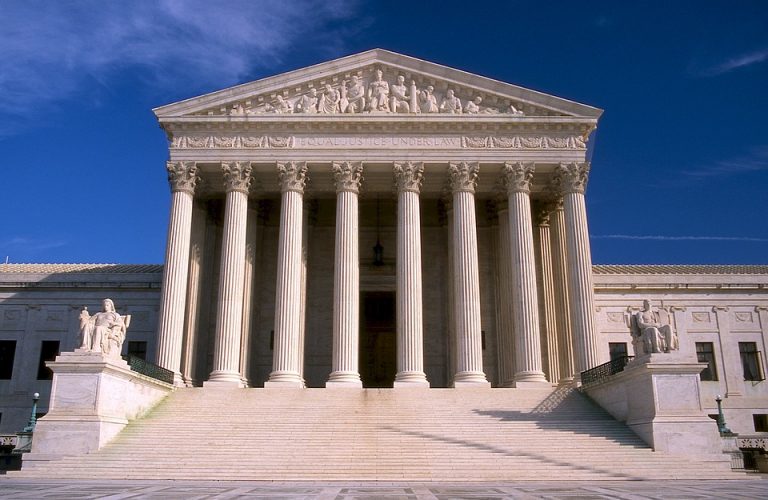 POLICY
POLICY
 POLICY
POLICY
 POLICY
POLICY
The U.S. Supreme Court today rejected a lawsuit that sought to limit how the federal government communicates with social media companies.
The case, Murthy v. Missouri, was dismissed in a 6-3 ruling. It focused on misinformation removal requests that officials from the White House and several federal agencies had sent to social media companies. Meta Platforms Inc., Google LLC and X were among the companies that received such requests.
“The evidence indicates that the platforms had independent incentives to moderate content and often exercised their own judgment,” the Supreme Court’s majority opinion stated.
The lawsuit was originally filed with the District Court for the Western District of Louisiana in 2022. It was brought by attorneys generals from Louisiana and Missouri as well as five social media users. The plaintiffs alleged that federal officials pressured social media companies to remove posts about the 2020 elections, COVID-19 and other topics in violation of the First Amendment.
Last July, the district court issued an injunction that limited federal officials’ ability to contact social media companies. The injunction applied to officials from the White House, the Justice Department, the Department of Health and Human Services, the State Department and several other federal agencies. The Justice Department appealed the ruling later in 2022 and the Fifth Circuit Court of Appeals subsequently narrowed its scope, but upheld it.
Today’s Supreme Court ruling overruled the injunction. The court’s majority opinion determined that the plaintiffs had no standing, or legal grounds, to bring the lawsuit. The justices rejected the argument that social media companies’ moderation decisions were “likely attributable at least in part” to concerns about the consequences of not fulfilling the government’s misinformation removal requests.
“The plaintiffs, without any concrete link between their injuries and the defendants’ conduct, ask us to conduct a review of the years-long communications between dozens of federal officials, across different agencies, with different social-media platforms, about different topics,” Justice Amy Coney Barrett wrote in the majority opinion. “This Court’s standing doctrine prevents us from ‘exercis[ing such] general legal oversight’ of the other branches of Government.”
One reason the justices decided to dismiss the case is that social media platforms took steps to tackle misinformation on their platforms before receiving requests to do so from the government. “As already discussed, the platforms moderated similar content long before any of the Government defendants engaged in the challenged conduct,” Coney Barrett wrote. “In fact, the platforms, acting independently, had strengthened their pre-existing content moderation policies before the Government defendants got involved.”
Support our mission to keep content open and free by engaging with theCUBE community. Join theCUBE’s Alumni Trust Network, where technology leaders connect, share intelligence and create opportunities.
Founded by tech visionaries John Furrier and Dave Vellante, SiliconANGLE Media has built a dynamic ecosystem of industry-leading digital media brands that reach 15+ million elite tech professionals. Our new proprietary theCUBE AI Video Cloud is breaking ground in audience interaction, leveraging theCUBEai.com neural network to help technology companies make data-driven decisions and stay at the forefront of industry conversations.